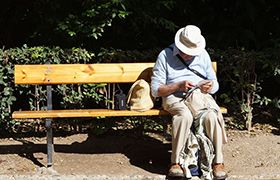Whаt to Exресt in Yоur 60ѕ
Forty-one percent of Americans aged 50+ claim they are ‘positive’ about aging. Remaining physically and mentally active can assist you to maintain your youth, especially when you are in your 60s when you have just begun embracing the concept that reading spectacles and wrinkles are permanent!
So, what does this decade have to offer you? The way each person ages is different and lifestyle have a huge role; however, you will go through factors that you cannot ignore and other changes that are conspicuous in your physical and mental wellbeing. You can make savings on prescription medicine, eye exams, hearing aids, etc.
Maintain your skin
Fortunately: Your skin is less hydrated. Therefore, the chances of you experiencing ugly breakouts are slim. Some women go through skin problems connected to menopause, however, in most cases, they can be treated using hormone-replacement therapy.
Unfortunately: You might note that your skin’s sensitivity is more, compared to before and you can experience more age spots. Think of utilizing a prescription hydroquinone product. According to Helen M. Torok, Dermatology & Surgery Center M.D. medical director at Trillium Creek in Medina, Ohio. Also, the wrinkles and fine lines that being visible in your 50s have become more pronounced, particularly if you sunned or smoked a lot in your youth.
One solution: According to Torok, retinol prescription products such as Renova or Retin-A. These creams restore damaged skin by hastening the replacement of cells.
Meaning: You might have enlarged superficial blood vessels in your 60s (known as telangiectasias) on the nose, cheeks, legs, and chin; this should not cause you concern, however. Doctors can zap them using a laser, which eliminates the blood vessels below the skin, without blemishing. Another choice to assist in maintaining skin that appears younger is a radio-frequency producing tool. It utilizes heat to tighten collagen and tauten the skin, without damaging the exterior epidermis.
Treatment: It is possible that in your 70s, you shall note a substantial increase in skin tags and extra skin near the jowl and necklines. Usually, skin tags are harmless and cauterizing, or freezing can extract them. If skin hanging beneath the jaw irritates you, think of a skin-tautening radio-frequency solution. Activities that are strenuous motivate the development of thicker and stronger bones that can prevent osteoporosis and bone breakages.

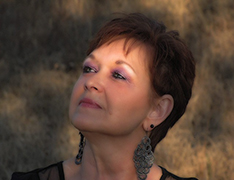
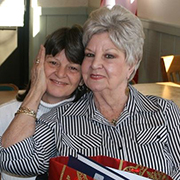
Maintain Bones for Wellbeing
Fortunately: If throughout your life you have been active, your joints, muscles, and bones can remain in excellent form in your 60s.
Unfortunately: Inactivity and old age can cause painful joints due to cartilage wearing out, lack of lubricating joint fluid and frailer muscles. Some solutions: sustaining a standard weight and strength training. Strenuous activities prompt the bones to become thicker and stronger, which can keep away osteoporosis and bone fractures.
Also, discuss with your doctor about supplements for calcium and vitamin D. The advisable dose of vitamin D for individuals in their 60s per day is 600 IU. For individuals in their 70s, it is 800 IU each day. Also, women in their 60s require around 1,200 mg of calcium each day.
Meaning: Your joints might give a sound similar to breaking twigs; however, those popping and creaking noises usually are not harmful, unless there is also inflammation and pain.
Trigger your metabolism
Fortunately: While it is common for metabolism to decline up to 5% each decade, this does not indicate that you should add weight when you are in your 60s. Just remain active and reduce calories if required, states Alice Lichtenstein, D.Sc., Cardiovascular Nutrition Laboratory director at the Human Nutrition Research Center on Aging.
Unfortunately: You might produce reduced hydrochloric acid in your 60s which lowers the presence of Vitamin B12, according to Lichtenstein. Find out from your doctor whether you require a B12 supplement (maximum dose: 2.4 mcg every day).
Meaning: It becomes increasingly slow for your stomach to empty, which can raise reflux risk. Also, the slowing of digested food via the large intestine can cause constipation. A simple solution is water and fiber. Including fiber in your diet might also assist to shield against colon polyps. Nearly 50% of people who are older than 60 experience colon polyps which may grow into cancer.
Treatment: Older people become dehydrated quickly. Therefore, it is vital to drink even when you are not thirsty. Inactivity presents a common risk element for a heart ailment, compared to obesity.
Sustain strength in your heart
Fortunately: A heart that is older can pump around the same quantity of blood with every beat as one that is younger can.
Unfortunately: Heart ailment makes us 20% and more of all fatalities among women and men aged 60 plus to 74. However, because of improvements in the treatment of this illness, the rate of death due to a heart ailment reduced by 27.8% from 1997 to 2007, states the American Heart Association.
One method of making your odds better is to remain active. Only 150 minute of reasonably strenuous activity each week reduces your possibility of acquiring coronary artery sickness by 14% in contrast with individuals who are not physically active.
Meaning: A racing heart or skipped beat might be atrial fibrillation, a kind of heart arrhythmia whose prevalence increases with age. Report this to your doctor as it can raise the danger of stroke.
Treatment: The occurrence of heart ailment increases with age: It ranks top among the causes of fatality for individuals aged 75-84.

Take care of your senses
Fortunately: Sustaining your senses is profoundly affected by lifestyle by assisting to sustain your senses as you age. Therefore, avoid loud noises, consume a well-balanced diet (which can contribute to keeping off some eye disorders connected to age) and consult a doctor as soon as possible if you note that your senses of taste or smell reduce drastically. (It may be a sign of a sinus infection or a medical response to medicine).
Unfortunately: Losing hearing because of age becomes more frequent, mainly due to destructive changes in the eardrum, ear canal, and other ear structures. Around 45% of people in their 60s go through some level hearing loss, increasing to 68% among the ones in their 70s. After 60 years, being able to hear tones of high-frequency also reduces. What action should one take?
Get rid of your pride and have yourself examined for hearing aids. Do you suffer from dry eye? The Restasis medicine can assist to form more tears, and omega-3 fatty acids present in fish like salmon and tuna and also fish oil supplements might help tear quality.
Meaning: It may be more difficult for you to see efficiently in dim light; usually, people in their 60s require thrice as much light to read as people in their 20s. Also, beyond 60 years, there is increased danger of macular disintegration. Fish oil together with a diet with lots of antioxidants can help to avoid this condition.
Treatment: By 70 years of age, it is probable that taste and smell have declined, lowering the capability of deriving pleasure from mild flavors. The taste buds reduce in quantity and sensitivity, and the nose nerve endings might not work as effectively. The solution is to increase the seasonings. Cultural meals such as Thai and Indian have herbs and spices that improve the smells and flavors of foods.
Enhance your sex life
Fortunately: In your 60s, sex can be better, compared to before. You have extra time and fewer interruptions. Also, aging signifies typically accepting yourself. Sexual contentment among women increases with age shows a recent research from School of Medicine, University of California, San Diego. In the study, 2/3 of women who engaged in sex (with an average age of 67) experienced total or some contentment with their sex lives.
Unfortunately: In women, hormones connected to sex, progesterone and estrogen and testosterone in men reduces and vaginal dryness might become more apparent; however, lubricants bought from pharmacies are useful and so are prescription tablets and creams.
Meaning: Levels of ED (erectile dysfunction) rises with age. In a study of males with ED, 40% initially had signs in their 60s. Research indicates that avoiding smoking and consuming an antioxidant-rich diet can be helpful.
Strengthen your immunity
Fortunately: Allergies that are triggered by an over-reactive immune system are possibly something that no longer exists as your immune system does not have the sensitivity it had previously.
Unfortunately: The immune reaction that is not as strong signifies you are more prone to becoming ill. Recurrent swelling, connected to a heart ailment, arthritis and diabetes make it more impossible for the body to start a productive immune reaction. Therefore, it is vital to losing extra weight, consume a healthy diet and work out.
Meaning: Your reaction to vaccines reduces with age, and you become more susceptible to diseases such as pneumonia and flu. When you are more than 60, you qualify to obtain a higher flue vaccine dose. When you are in your 60s, you shall also require vaccines against pneumococcal illness and shingles, since these ailments usually occur after 60 years of age.
Treatment: Cancer levels increase with age and most cancer cases happen in patients who are more than 60 years. So, get the screenings recommended.
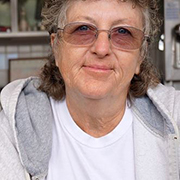

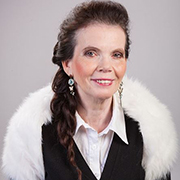
Pass urine less at night
Fortunately: If your health is usually excellent, it is possible that your urological system functions almost as efficiently as when you were younger. A variety of therapies can assist when issues occur.
Unfortunately: Do you need to pass urine at night? It should not because you concern as this is normal at this period. Eighty percent of individuals in their 60s should visit the loo at least once each night,’ states the Wake Forest University School of Medicine (Winston-Salem, NC) assistant professor, Ryan P. Terlecki M.D.
Make an effort to reduce the liquids after 6 p.m and do not take caffeine in the afternoon. And if you are taking diuretics for high blood pressure, ask your doctor whether you can swallow your pill in the morning.
Stress incontinence: Loss of urine during sneezing or coughing is experienced by 1 in 3 females in their 60s. Also, women in their 60s are more susceptible to going through urge incontinence (an irrepressible urge to pass urine). You can manage symptoms via bladder training, pelvic floor workouts (‘Kegels’) and medicine which makes the muscles near the bladder.
Meaning: Do you visit the toilet throughout? You might suffer overactive bladder, a state that is triggered by bladder muscles which tighten occasionally. A lot of individuals dismiss it as merely another sign of aging; however, medication, Kegels, and bladder training can assist.
Treatment: More than 50% of males in their 70s shall experience prostate problems. Consult a urologist if believe you have an issue.
Remain happy
Fortunately: We become happier. Recently, an AARP research indicated that from the beginning of your 50s, joy raises with time. This trend has a single explanation, many years experience. ‘As you age, you acknowledge that the difficult periods will pass,’ remarks Laura Carstensen, Ph.D., Stanford Center on Longevity director. ‘You are also aware that great times will not last, which makes these great times even extra valuable.’
Unfortunately: You should avoid stressful circumstances, which make you lose new opportunities. Just ensure that each of your social relations remains strong. They might be the answer to tackling impending difficulties with strength.
Meaning: Are you anxious that nowadays you do not worry as before? ‘The capability of controlling one’s feelings gets better as you age,’ states Bob Knight, Ph.D. USC Davis School of Gerontology (Los Angeles) professor. Answer: 70-year-old people are ever joyful and content with their lives, according to research.
Be alert
Fortunately: the development of new brain cells known as neurogenesis, persists in your 60s. And the ability to gain knowledge of new things remain strong,’ according to Gary J. Kennedy, M.D., psychiatry & behavioral science professor of psychiatry in geriatric psychiatry division (Montefiore Medical Center, New York).
Unfortunately: a section of your brain circuitry begins to wear out with age; however, a lot of us make up for this by depending on the other parts of our brain, and our previous experience to reach decisions.
‘It is the ‘wisdom’ which increases in old age,’ states Kennedy. You might discover when in your 60s that your accessing memories become slow.’ However, losing memory, which at one time was believed to accompany aging, can be avoided, in many instances, according to the latest research.
‘You can enhance the health of your brain by obtaining frequent mental stimulus, physical workout, and social interaction,’ says Kennedy. For example, MRIs indicate that grownups who work out frequently present a huger hippocampus (the area of the brain whose role is learning and memory), which assists in maintaining alertness of the mind.
Meaning: If you stare at a cabinet and cannot remember the reason you opened it, do not worry. In your 60s, slight forgetfulness occurs as the sending of nerve impulses between cells becomes slower. Very few times is it a symptom of something severe. A lot of people in their 60s begin to grow concerned about Alzheimer’s; the danger of acquiring this terrible illness is on average, low in this era. Less than 5% of Alzheimer’s suffers are below 60 plus.

